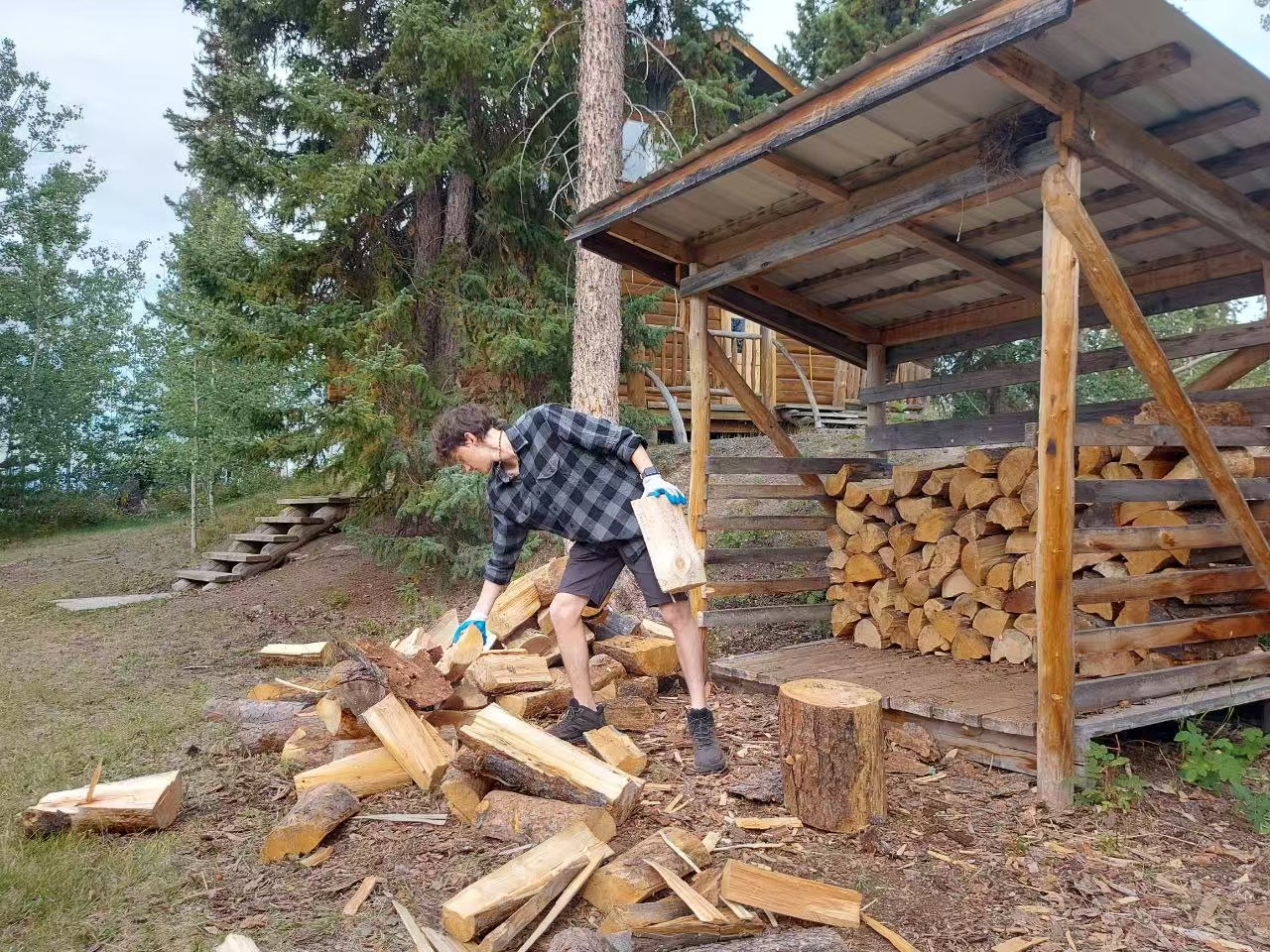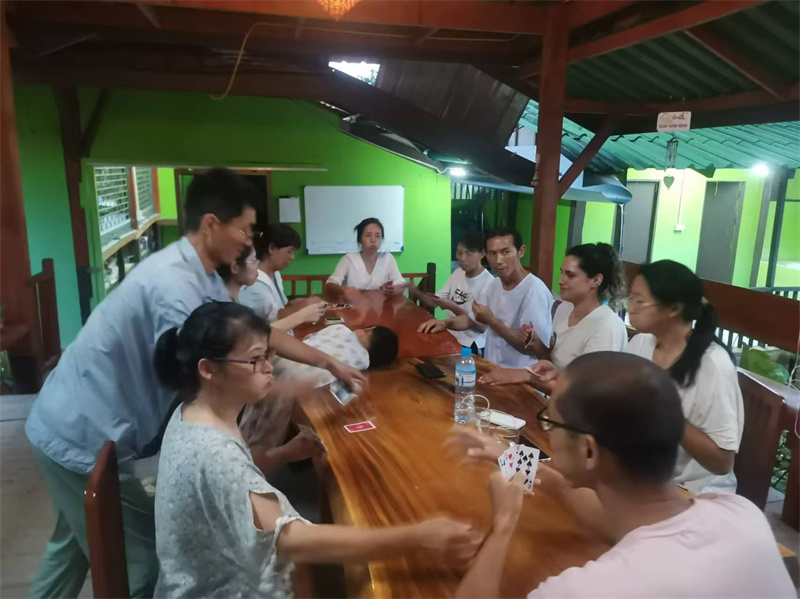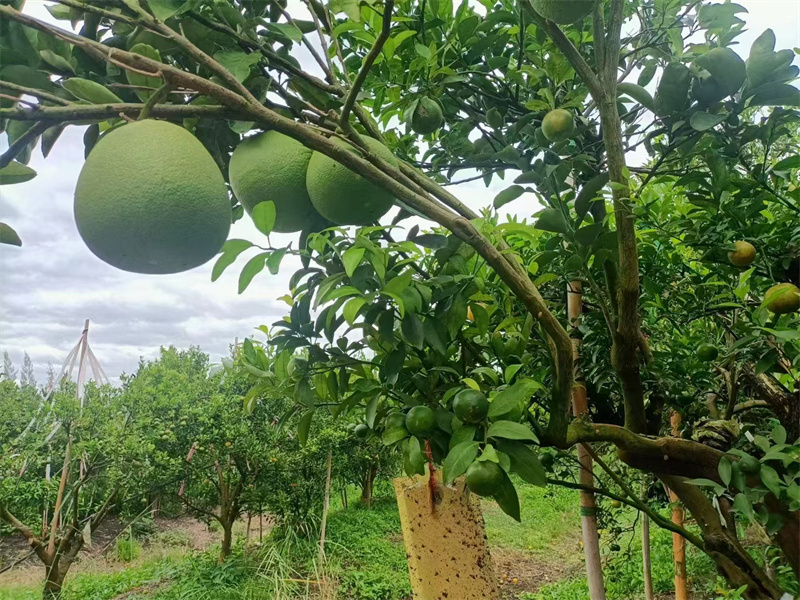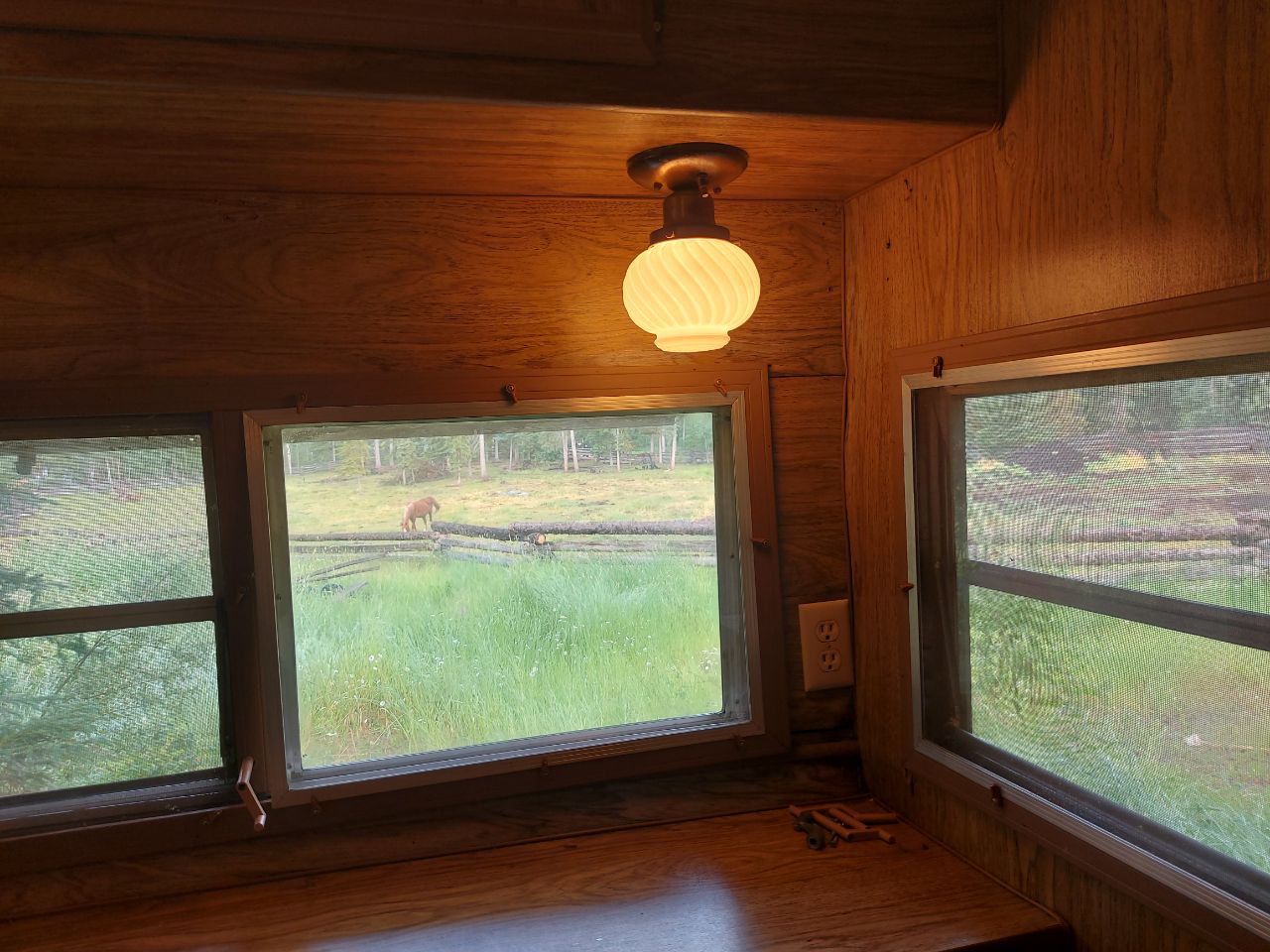Two young people share their thoughts and experiences on this question: Nébesna Fortin from La Cité Écologique, Canada; and, Kira Taylor-Hoar, USA, who has travelled through different ecovillages in Europe.
How La Cité Ecologique challenges the next generation.
By Nébesna Fortin
In many Ecovillages, the question of keeping young members active in the community is a big challenge. Many young adults leave their home ecovillage to experience other lifestyles. In the Canadian ecovillage, La Cité Écologique, where I was born, a program works pretty well in keeping the young adults involved, by creating entrepreneurship and leadership aspirations in young members. For myself, and the majority of my colleagues, this idea is highly effective.
The basic idea is to get the young adults involved as much as possible in all aspects of the community. Even at high school age, we were invited to participate in one or many businesses we had interests for. Internship and practical learning classes are given in all domains: cooking, accounting, sowing, gardening. We were invited to plan and manage large projects like the preparation of a meal for all the members each week, creating a theater play, and getting the younger kids involved, amongst many other ideas.
One of our projects was to take care of trees in green houses. It was challenging, and yes, all the plants burned once, and then flooded the next week! I can imagine how confident and patient the adults were, that they scarified the trees in the green houses, all the plants in all the growing space, with the only result being us having a formidable learning experience!
The next step was when I graduated. At the age of eighteen years, I was given the opportunity of becoming the kitchen manager. I was happy to have this great chance, and once more I admire the devotion and acceptance of the adults that let me make my experiences and take assurance in this managing position while being always there to support me.
For me, it was a unique and precious opportunity to really get involved in my ecovillage. Other folks of my age took jobs in existing businesses, managing the designing of new collections for our Respecterre clothing and Khéops gifts. Others got involved in accounting and child care.
When the years passed, we were called to change jobs and let younger people take our place. Now I am managing the internship program and the tourist aspect of La Cité. Last week I was eating with one of our interns and a young lady who is still in high school. The intern asked her what she wanted to do when she graduates. She replied, ‘I want Nébesna's job!’ I was proud and happy. It will soon be my time to pass on my responsibilities and get involved in new aspects of our community. This is for me the best thing that could happen, knowing that the next young adults are going to be there with us.
Whichever job I will have, as long I am involved in the Ecovillage, I am at home! Because from the moment I opened my eyes for the first time, I was welcome as an active member of my Ecovillage.
Today, young adults raised at La Cité are managing many of the enterprises in the Ecovillage, and the administration board is in the hands of the second generation. Most of the kids stay on site and some are running businesses on their own.
The Dream of a Youth Exchange among Ecovillages.
By Kira Taylor-Hoar.
I have travelled to ten Ecovillages in Europe and have interviewed youth from each of these on what they like about living in community, what they would like to see changed, and how important membership in an ecovillage has been to their personal development. My main goal has been creating the connections necessary in order to implement a Youth Exchange Program between ecovillages. I want to give you a taste of some of the responses I have received:
Anna Fee Angeoaare currently lives in Sieben Linden in Germany, and her response to a question of personal development was a common answer amongst young people living in community: ‘Since living here, I feel like I am accepted, like I can be myself.’
Elle Adams of the Findhorn Ecovillage in Scotland had a similar answer as Anna but, along with all other youth interviewed, would like to see some changes in her community: ‘I would like to see more community action, such as building, or creativity projects for youth to be involved in. I would also like to see more opportunities to change things for the better.’
Fabian Lecher, from ZEGG (Zentrum für experimentelle Gesellschaftsgestaltung, or, Center for Experimental Cultural Design) in Germany, says that young people are essential in intentional communities. His response was also a common answer amongst the young people of these communities: ‘Young people have the energy to change something, to create something. As they are the leaders of tomorrow it is really important to educate them in a proper way. You can get proper education in community - the kind of education you really need in life.’ Fabian says that for his personal development, one month of living in a community like ZEGG is equal to one year of living in ‘reality’.
A Youth Exchange Program could bring a transfer of energy, human resources, skills, and knowledge that might accelerate the rate of information sharing between, and within, these communities. Bringing youth to these places could show them the way that communities function - what works and what doesn’t - so that they may bring this information back to their original community or even create their own new community.
My hope is that this will bring new energy into these places, acting as a catalyst for change and growth, helping the communities to become all that they can be, with all the information that is available.
 Haha, I’ve got a helper now!
Xuefeng
September 8, 2024
(Translation edited by Q
Haha, I’ve got a helper now!
Xuefeng
September 8, 2024
(Translation edited by Q
 Haha, I felt young again!XuefengYesterday morning, after breakfast, I started ch
Haha, I felt young again!XuefengYesterday morning, after breakfast, I started ch
 Papaver rhoeas: The Designated Flower of Lifechanyuan
by Xuefeng
August 20, 2024
Papaver rhoeas: The Designated Flower of Lifechanyuan
by Xuefeng
August 20, 2024
 Joyful Games and Warm Welcome for Gabi at Lifechanyuan's Thai Home
Qianzi Celest
Joyful Games and Warm Welcome for Gabi at Lifechanyuan's Thai Home
Qianzi Celest
 Chilean Girl Gabi Experiences the Life of Lifechanyuan Thailand Second Home Comm
Chilean Girl Gabi Experiences the Life of Lifechanyuan Thailand Second Home Comm
 Another Clean and Tidy Joy House
In the tourist resort Holy Land Home, the guide
Another Clean and Tidy Joy House
In the tourist resort Holy Land Home, the guide


 Post time 2017-09-05 17:41:08
Post time 2017-09-05 17:41:08




 Favorites
Favorites Relay
Relay Shares
Shares Collection
Collection